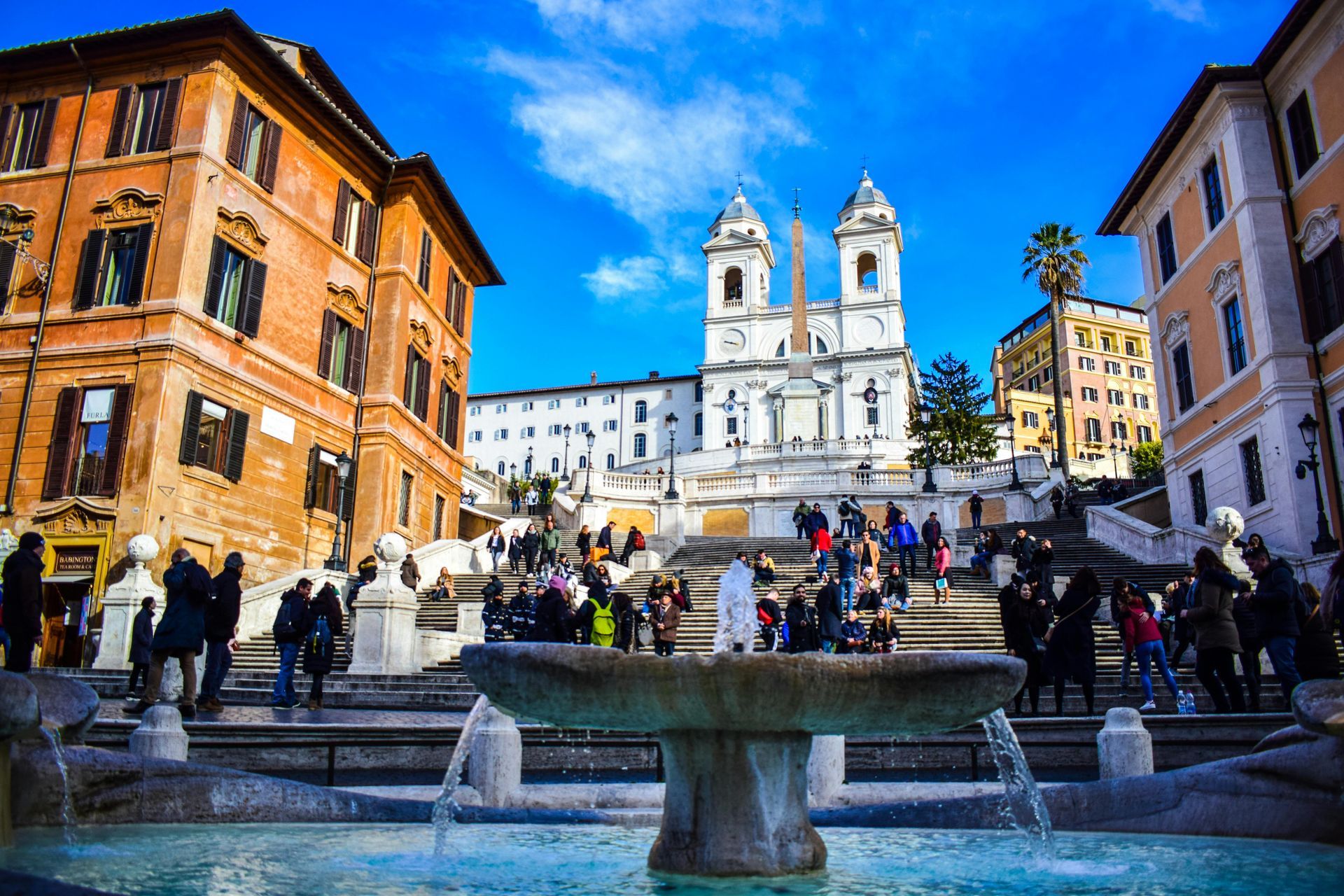Italy
Capital: Rome
Population: about 58 million
Time zone: CET
Airline: Norwegian, Allitalia
Weather
Italy offers a varied climate. Northern Italy has an alpine climate with cold winters and warm summers. Central Italy has a Mediterranean climate with mild winters and hot, dry summers. The southern part, dry summers and mild winters.
Language
Italian is the official language of Italy, a Romance language with beautiful melodies. Many Italians speak English, especially in tourist areas. Learn "ciao" (hello/goodbye), "grazie" (thank you). Dialects vary by region.
Currency
1 € = 1.08 $
Italy's currency is EUR (Euro). Card payments are common, but it's always good to have some cash on hand for smaller purchases and markets. ATMs are plentiful, especially in larger cities.
Pass
As an EU citizen, you do not need a visa to travel to Italy. A valid passport or national ID card is sufficient for entry into the Schengen area. No vaccination requirements for EU citizens. Always double-check with the Ministry of Foreign Affairs.
GOOD TO KNOW BEFORE THE TRIP
Facts about the destination
Passport and visa
As a Swedish citizen, you can travel to Italy without a visa. Italy is a member of the EU and the Schengen area, which simplifies travel. A valid passport or national ID card is required as a travel document. It is important that your passport or ID card is valid throughout your stay. Although there are no formal passport controls within Schengen, identity checks may occur. The same rules apply to minors, but it is recommended to bring a certificate from a guardian if the child is traveling alone or with only one parent. Always check the latest information on Sweden Abroad.
Weather and climate
Italy offers a varied climate, from the snow-capped peaks of the Alps to the sunny beaches of Sicily. Northern Italy has cold winters and warm summers, perfect for skiing and hiking. Central Italy, including Rome, offers mild winters and hot summers. Southern Italy, with its islands, has a typical Mediterranean climate with long, warm summers and mild winters. Spring and autumn are ideal for city visits and excursions. Pack layers, sunscreen and possibly rain gear. Always check the current weather forecast before your trip, as local variations occur.
Telephone and internet
The country code is 39.
As an EU citizen, you can use your Swedish mobile phone in Italy without additional roaming charges. Italy has excellent coverage for both telephony and 4G/5G. Wi-Fi is available in most hotels, cafes and restaurants. Beware of free Wi-Fi networks that do not require a password, this can be risky. Download maps and travel apps in advance. The emergency number 112 works throughout the country. Always check with your mobile operator regarding any data limits.
Electricity
Portugal has 230 volts of voltage and the standard frequency is 50 Hz. In hotels, public environments or in private homes the same type of electrical outlet is used as in Sweden, no adapter is needed for Swedish travelers.
Best travel period
During spring/early summer (April – June) and autumn (September – October) the weather is most pleasant, but even sun trips during the summer months can be enjoyable. Swimming in the Atlantic can be surprisingly refreshing, the water rarely gets really warm.
Vaccination
As a Swedish citizen, you are entitled to necessary healthcare in Italy with the European Health Insurance Card. However, please note that this card does not cover all healthcare and does not replace travel insurance.
The EU card entitles you to healthcare on the same terms as Italian citizens, which may involve patient fees. No mandatory vaccinations are required for entry from Sweden, but it is always a good idea to check with your health centre. The emergency number 112 works throughout Italy.
Language
Italian is the official language of Italy. Many Italians, especially in tourism, speak English, but knowing a few phrases in Italian is always appreciated. "Buongiorno" (good day), "grazie" (thank you) and "prego" (please) are good to know. Regional dialects exist, but standard Italian is understood throughout the country. A phrasebook or translation app can be helpful. Don't hesitate to ask if you need help - Italians are known for their hospitality.
Currency & tips
In Italy, the euro (EUR) is used. Card payments are common, but cash is sometimes needed in smaller towns and markets. Use trusted ATMs to avoid fraud. Tipping (mancia) is not mandatory, but is appreciated. In restaurants, it is customary to leave a few extra euros, especially for good service. Hotel staff appreciate a small amount. Remember that in some restaurants a service charge (coperto / mancia) is added to the bill.






